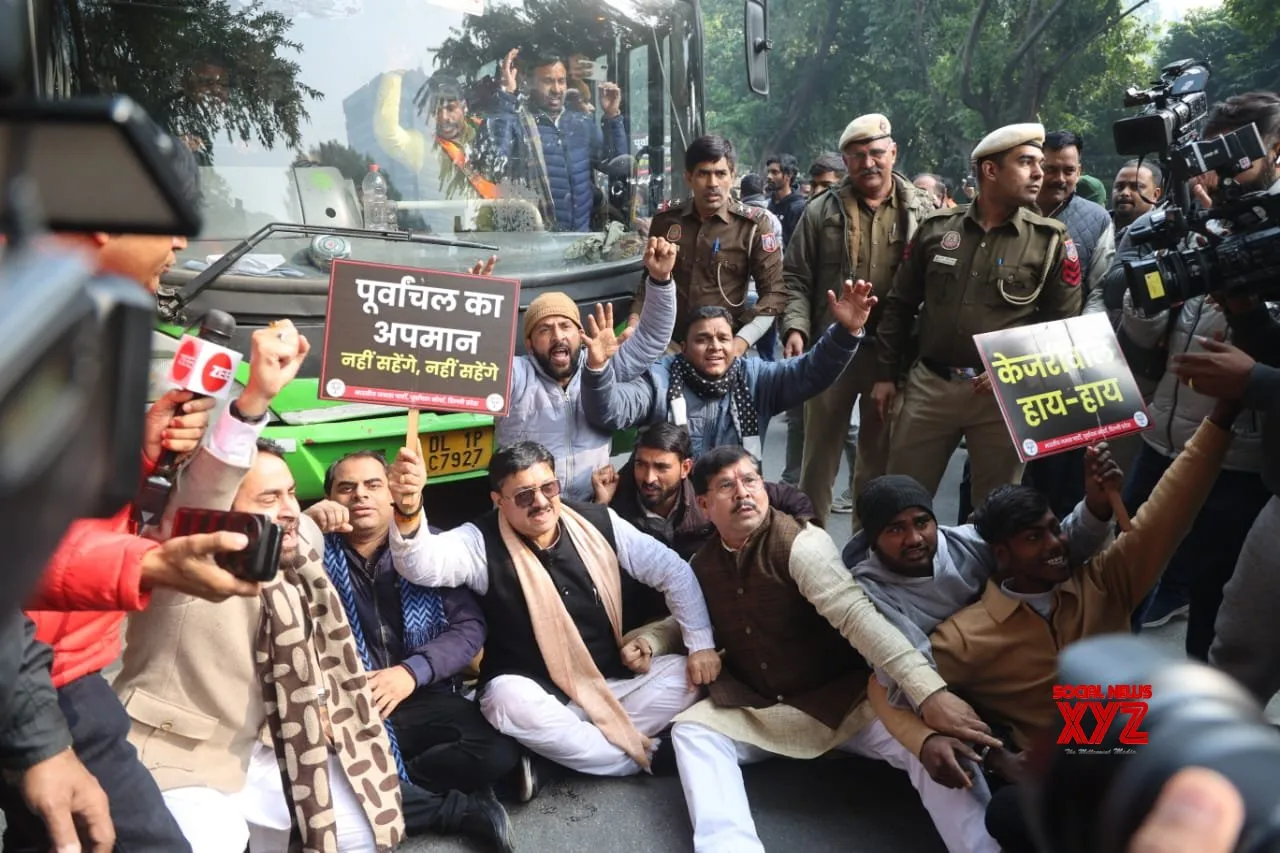
New Delhi: As both parties aim to attract the Purvanchali vote bank in Delhi, tensions escalated between the ruling Aam Aadmi Party (AAP) and the opposition Bharatiya Janata Party (BJP). The BJP’s women’s wing staged a protest outside the home of AAP leader Arvind Kejriwal, accusing him of being “anti-Purvanchali” following his remarks about migrants from Bihar and eastern Uttar Pradesh.
The controversy stems from Kejriwal’s recent comments labeling people from Purvanchal as “fake voters.” In response, he defended his administration by asserting that it had significantly improved living conditions for Purvanchalis in unauthorized colonies and slums, providing essential civic and health services.
Kejriwal shifted the focus of blame onto the BJP-led central government, arguing that they have failed to initiate development in these struggling communities. He stated, “People from Purvanchal come here and live in slums. Before 2014, life was unbearable, with no development. The Supreme Court and the central government restricted any progress there. More than 90 percent of people in these slums are from Purvanchal. I challenge the BJP: what have you done for these communities in the past decade?”
The BJP, led by Delhi President Virendra Sachdeva, retaliated against Kejriwal, suggesting that his comments reflect his true mindset and are indicative of his fear of losing power. He accused Kejriwal of insulting Purvanchali voters.
The importance of the Purvanchali community in Delhi cannot be overstated, with around 42 percent of the city’s 1.55 crore voters belonging to this demographic. Their votes are pivotal in nearly half of Delhi’s 70 Assembly constituencies, including significant areas like Burari, Laxmi Nagar, and Dwarka.
In recent election campaigning, even Prime Minister Narendra Modi acknowledged their concerns, contrasting the central government’s efforts to provide ownership rights in unauthorized colonies with what he termed AAP’s failure to deliver basic services.
The AAP has also made efforts to cater to the Purvanchali community by declaring Chhath, a significant festival for them, as a public holiday in Delhi and facilitating related arrangements.
The BJP, through its Purvanchal Morcha, has been connecting with this constituency, promoting North East Delhi MP Manoj Tiwari, a prominent figure from the region.
Delhi’s Assembly elections are set for February 5, with results to be announced on February 8. Currently, the AAP holds 62 seats in the outgoing Assembly, while BJP has eight.
